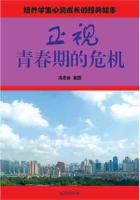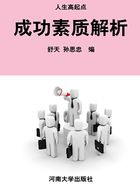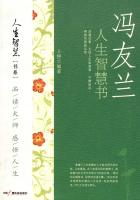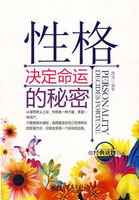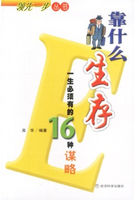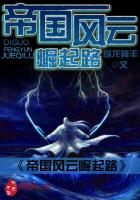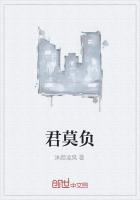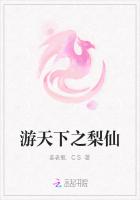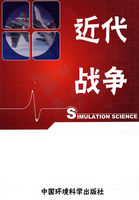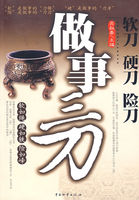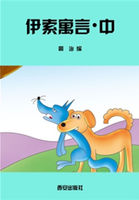A Boy with a Mission
一个男孩的使命
In 1945, a 12-year-old boy saw something in a shop window that set his heart racing. But the price—five dollars—was far beyond Reuben Earle"s means. Five dollars would buy almost a week"s groceries for his family.
Reuben couldn"t ask his father for the money. Everything Mark Earle made through fishing in Bay Roberts, Newfoundland, Canada. Reuben"s mother, Dora, stretched like elastic to feed and clothe their five children.
Nevertheless, he opened the shop"s weathered door and went inside. Standing proud and straight in his flour-sack shirt and washed-out trousers, he told the shopkeeper what he wanted, adding, “But I don"t have the money right now. Can you please hold it for me for some time?”
“I"ll try,”the shopkeeper smiled. “Folks around here don"t usually have that kind of money to spend on things. It should keep for a while.”
Reuben respectfully touched his worn cap and walked out into the sunlight with the bay rippling in a freshening wind. There was a purpose in his loping stride. He would raise the five dollars and not tell anybody.
Hearing the sound of hammering from a side street, Reuben had an idea.
He ran towards the sound and stopped at a construction site. People built their own homes in Bay Roberts, using nails purchased in hessian sacks from a local factory. Sometimes the sacks were discarded in the flurry of building, and Reuben knew he could sell them back to the factory for five cents a piece.
That day he found two sacks, which he took to the rambling wooden factory and sold to the man in charge of packing nails.
The boy"s hand tightly clutched the five-cent pieces as he ran the two kilometers home.
Near his house stood the ancient barn that housed the family"s goats and chickens. Reuben found a rusty soda tin and dropped his coins inside. Then he climbed into the loft of the barn and hid the tin beneath a pile of sweet smelling hay.
It was dinnertime when Reuben got home. His father sat at the big kitchen table, working on a fishing net. Dora was at the kitchen stove, ready to serve dinner as Reuben took his place at the table.
He looked at his mother and smiled. Sunlight from the window gilded her shoulder-length blonde hair. Slim and beautiful, she was the center of the home, the glue that held it together.
Her chores were never-ending. Sewing clothes for her family on the old Singer treadle machine, cooking meals and baking bread, planting and tending a vegetable garden, milking the goats and scrubbing soiled clothes on a washboard. But she was happy. Her family and their well-being were her highest priority.
Every day after chores and school, Reuben scoured the town, collecting the hessian nail bags. On the day the two-room school closed for the summer, no student was more delighted than Reuben. Now he would have more time for his mission.
All summer long, despite chores at home weeding and watering the garden, cutting wood and fetching water—Reuben kept to his secret task.
Then all too soon the garden was harvested, the vegetables canned and stored, and the school reopened. Soon the leaves fell and the winds blew cold and gusty from the bay. Reuben wandered the streets, diligently searching for his hessian treasures.
Often he was cold, tired and hungry, but the thought of the object in the shop window sustained him. Sometimes his mother would ask: “Reuben, where were you? We were waiting for you to have dinner.”
“Playing, Mum. Sorry.”
Dora would look at his face and shake her head. Boys.
Finally spring burst into glorious green and Reuben"s spirits erupted. The time had come! He ran into the barn, climbed to the hayloft and uncovered the tin can. He poured the coins out and began to count.
Then he counted again. He needed 20 cents more. Could there be any sacks left any where in town? He had to find four and sell them before the day ended.
Reuben ran down Water Street.
The shadows were lengthening when Reuben arrived at the factory. The sack buyer was about to lock up.
“Mister! Please don"t close up yet.”
The man turned and saw Reuben, dirty and sweat stained.
“Come back tomorrow, boy.”
“Please, Mister. I have to sell the sacks now—please.”The man heard a tremor in Reuben"s voice and could tell he was close to tears.
“Why do you need this money so badly?”
“It"s a secret.”
The man took the sacks, reached into his pocket and put four coins in Reuben"s hand. Reuben murmured a thank you and ran home.
Then, clutching the tin can, he headed for the shop.
“I have the money,” he solemnly told the owner.
The man went to the window and retrieved Reuben"s treasure.
He wiped the dust off and gently wrapped it in brown paper. Then he placed the parcel in Reuben"s hands.
Racing home, Reuben burst through the front door. His mother was scrubbing the kitchen stove. “Here, Mum! Here!”Reuben exclaimed as he ran to her side. He placed a small box in her work roughened hand.
She unwrapped it carefully, to save the paper. A blue-velvet jewel box appeared. Dora lifted the lid, tears beginning to blur her vision.
In gold lettering on a small, almond-shaped brooch was the word Mother.
It was Mother"s Day, 1946.
Dora had never received such a gift; she had no finery except her wedding ring. Speechless, she smiled radiantly and gathered her son into her arms.
1945年,一个12岁的男孩在一家商店橱窗里看到一样令他心动的东西,但是——5美元——远不是鲁本-厄尔能付得起的。5美元几乎够买全家一周的食品呢。
鲁本不能向父亲要钱。马克-厄尔的每一分钱都是靠在加拿大纽芬兰的罗伯茨湾捕鱼挣来的。鲁本的母亲多拉,为了不让五个孩子冻着饿着,差不多是一个钱当两个钱用。
尽管如此,鲁本还是推开商店那扇久经风雨的门走了进去。他穿着面粉袋改做的衬衫和洗得褪了色的裤子,站得笔直,丝毫不觉困窘。他告诉了店主他想要的东西,又加上一句:“可我现在还没有钱买它,您能为我预留一段时间吗?”
“我尽量吧,”店主微笑着说,“这儿的人买起东西来,一般不会花那么大一笔钱的,一时半会儿卖不出去 。”
鲁本很有礼貌地碰了碰他的旧帽沿儿,走出店外。阳光下清新的微风吹得罗伯茨湾的海水泛起阵阵涟漪。鲁本迈着大步,下定决心:他要凑齐那5美元,而且不告诉任何人。
听到街边传来的铁锤声,鲁本有了主意。
他循声跑过去,来到一处建筑工地。罗伯茨湾的人喜欢自己建房,用的钉子是从本地一家工厂买的,都用麻袋来装。有时干活时忙乱中麻袋就被随手丢弃,而鲁本知道他可以 5分钱一条把麻袋再卖给工厂。
那天,他找了两条麻袋,拿到杂乱的木材厂,卖给为钉子装袋的人。
两公里的路程他是一路跑着回的家,手里紧紧攥着两个5分硬币。
他家旁边有个颇有年头的谷仓,里面圈着家里的山羊和鸡。鲁本在那里找到一个生锈的装苏打的铁罐,把两枚硬币放了进去。然后,他爬上谷仓的阁楼,把铁罐藏在一堆散发着甜香味的干草下面。
晚饭时分,鲁本跨进家门。父亲正坐在厨房大餐桌旁摆弄渔网,多拉在灶台边忙碌着,准备开饭。鲁本就在桌边坐下了。
他看着妈妈,笑了。窗户透进的夕阳余晖将她棕褐的披肩发染成了金色。苗条、美丽的母亲是这个家的中心,她像胶水一样使这个家紧紧粘结在一起。
母亲的家务活永远也没个完。用老式的“胜家”缝纫机为一家人缝缝补补;要做饭、烤面包;要照料菜园;要挤羊奶;还要在洗衣板上搓洗脏衣服。可母亲是快乐的,全家人的幸福、健康在她心中是最重要的。
每天放学,做完家务事后,鲁本就在镇上搜寻装钉子的麻袋。只有两间教室的学校开始放暑假的那天,没人能比鲁本更高兴了。现在他有更多时间去完成他的使命。
整整一个夏天,鲁本除了干家务——给菜园锄草、浇水,砍柴和打水外,始终进行着他的秘密任务。

